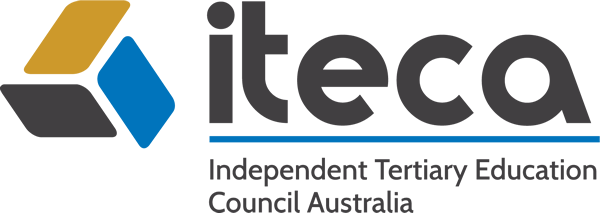Tips for studying aged care as a mature age student
Thinking about heading back to study in your later 20s, 30s, 40s or 50s? This means you will be returning as a mature age student. If it’s been a while since you last studied, whether it was in high school or undertaking a course, you might feel a little nervous. But there’s no need to worry – it’s not as daunting as it sounds. Studying as a mature age student doesn’t have to be difficult, especially if you choose a course that is best suited to your goals and circumstances.

There are many reasons to return to study, and gaining a new qualification might enable you to take the next step in your career. Alternatively, you might be training for a career change to a whole new sector, which can be exciting. When deciding on an appropriate course you might ask yourself a few questions, like:
- Does this course offer flexible learning?
- Does this course suit my needs and aspirations?
- Will this course lead to rewarding career progression?
Once you’ve answered these questions you might consider some strategies which will help you ease back into learning. It’s never too late to return to study, and there are plenty of simple and effective ways to make the process easier.
Find learning options to suit you
A good way to achieve a healthy balance between life and study is to choose a course with options for flexible learning. The transition to learning online was fast-tracked by the pandemic and has made accessing education a lot easier for many people. Plus, there are a wide range of benefits to studying via distance learning. For one thing, your schedule is up to you which makes it far easier to manage study with work or family commitments.
Flexible learning doesn’t mean you’ll miss out on practical training or support either. Practical placement is incorporated as a component of your aged care course with Royal College. We also have a dedicated team of trainers and professionals who are on hand to support your aged care training journey and can connect you to all the resources you need.
Work out a balanced routine
Organisation and planning are the keys to managing a busy schedule, and if you have a lot on your plate it might be a good idea to get everything ready before your course commences. This might look like:
- Preparing for study by purchasing materials like books and stationery
- Understanding what is expected of you in terms of assessment
- Taking note of key dates
- Arranging child care
- Adding study time into your weekly routine
- Planning your work roster around study dates
- Familiarising yourself with the online learning portal and any computer programs or technology that will help you to learn
Don’t forget to include time for relaxation and leisure in your routine. With a little planning, you can ensure your transition to studying will be as smooth as possible.
Ask for help as needed
Remember that if you’re feeling overwhelmed, support is never far away. Your learning and wellbeing are our main priority, and we encourage you to take advantage of services designed to ensure you feel capable and supported. Talking to a member of the Royal College Learner Success Team is an opportunity to ask questions, discuss challenges, and identify solutions to any issues you might be having. The types of things we can help with are:
- Language support, including for those who may not have English as their first language
- Study tips for success
- Advice on how to maximise your learning potential
- Literacy and numeracy support
- Assistance with securing placement and preparing your resume
Taking advantage of support services means working together to maximise your learning experience.
Embrace technology
Technology is something we cannot live without, but for some of us learning how to use it feels like a difficult, daunting or downright terrifying task. Whether you’re tech-savvy or have trouble turning your phone on, embracing technology can be really helpful in terms of study. If you’re unsure how to use a program or device, don’t despair. We are here to help!
Now that you’re equipped with some handy information, it’s time to decide whether a course in aged care is right for you.
Considering a course in aged care
Working in aged care is an opportunity to help elderly Australians age with dignity and respect. Whether you are already working in the sector and looking to upskill, or considering switching your career to aged care, it’s likely you’ll need to return to study.
Choosing the right aged care training will empower you to take control of your learning and make the most of your experience. You’ll enter at a different level of study depending on where you’re at, but a typical progression in aged care might look something like this:
- Start with a Certificate III in Individual Support
- Progress to a Certificate IV in Ageing Support
- Upskill with a short course or Advanced Diploma, depending on your preferred area of specialisation
Flexible study, flexible work
While Royal College aims to make your course experience flexible and enjoyable, the flexibility continues once you’re employed. You can explore aged care roles across both residential and home care. Each involves a range of different roles and responsibilities, and you can work this to your advantage. There are a variety of different positions, areas of care, timetables and working arrangements to choose from so you can enjoy a balanced lifestyle as well as a rewarding career.
Once you’ve completed your studies, Royal College can also continue to support your professional development as you find ways to advance your career.
Returning to study could be the most rewarding thing you do. Challenge yourself to be the best you can be! Read up on our aged care courses today.



